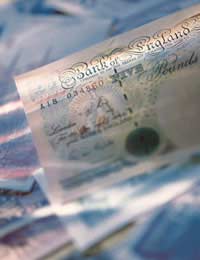What is Income Tax?

Income Tax is, in the most basic terms, a tax which is levied upon the incomes of individuals. Corporations are legally regarded as private individuals in the UK (thus the immunity possessed by employees of a corporation against prosecution for crimes committed by the corporation itself), and so the term income tax can be used to describe both the taxation of private citizens' income and that of corporations.
Gross Income
In the case of individuals, income tax is calculated as a percentage of annual gross income; that is, the total income before any previous deductions. There is also a range of different types of income upon which tax is levied (known as 'taxable income' or the 'tax net'). Some of these types of income are subject to their own individual forms of taxation; income received as a result of a rise in share price, for example, is subject to capital gains tax. However, all of these types of tax are part of the income tax system.When someone talks about income tax in the UK, it is generally assumed that they are referring to the tax paid on an individual's wages. In this country income tax is progressive, meaning that a number of tax bands exist. Each of these bands covers a certain income threshold, and individuals who are earning larger sums of money will pay more tax until they reach the upper band, at which point the percentage of their income which is owed to the Exchequer will remain the same.
British income tax did not always operate this way. Until the build-up to the Napoleonic Wars there was a flat tax, meaning that everyone owed the same percentage of their income, regardless of how much they earned. It is generally thought that a progressive tax system is the fairest of all possibilities.
Income Tax Schedules
There were originally six income tax Schedules, named alphabetically, although only Schedules A, D and F are still in use. These cover income from land held in the UK, income from trade and professions, casual income, income from overseas occupations and interest, and interest on dividends from UK-held assets.Within each of these Schedules, the bands determine how much income tax you will pay. Currently basic rate earners pay 20%, higher rate earners pay 40%, and there is an additional rate of 50%. No income tax is payable on income below a certain threshold; this is currently set at £9,440 for the 2013-14 financial year, rising to £10,000 for the 2014-2015 tax year.
For the majority of people, income tax is paid on a PAYE (Pay As You Earn), basis. This means that your tax payments will be made automatically from your wage packet if you are employed, thus reducing the onus on the individual.
However, if you are self-employed, you will be required to fill out a Self Assessment at the end of each tax year. In this form you will need to declare all of your income, and the Inland Revenue will then determine how much tax you must pay. Similarly, under- or over-payments are also rectified at the end of each financial year.
Business Energy With a Difference
If you are looking for business energy or need advanced solutions like remote energy monitoring, new supplies, downgrading or upgrading capacity, have a no obligation chat with Purely Energy.
To find our more get in touch here. or call 0161 521 3400.







